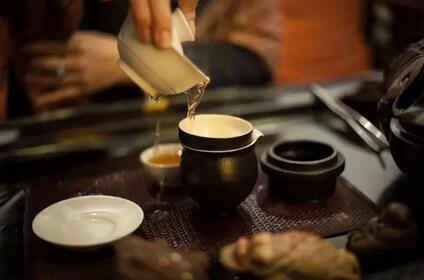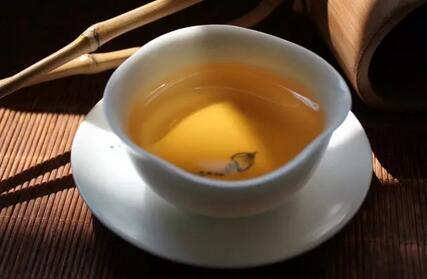
So, who are these "natural enemies" of Pu-erh tea? Natural Enemy No. 1—Alcohol: Many believe the saying, "Drinking tea after alcohol is good for the liver and sobers you up." However, those who have overindulged know how wrong this is. Drinking Pu-erh tea after alcohol worsens discomfort, causing cold sweats and stomach upset. It increases heart strain and can lead to accidents. Instead, opt for warm milk and rest after drinking. Wait until the next morning after breakfast to drink ripe Pu-erh tea, which aids in repairing the stomach. Natural Enemy No. 2—Protein: The acidic compounds in tea bind with protein, reducing intestinal motility and water content, leading to constipation. Avoid drinking Pu-erh tea within 3 hours of consuming high-protein foods like beef, milk, or eggs. Natural Enemy No. 3—Medication: Whether traditional Chinese or Western medicine, Pu-erh tea clashes with medications. Tea compounds can react with medicinal elements, forming precipitates and reducing efficacy. Avoid tea, especially strong Pu-erh, while taking medication. Natural Enemy No. 4—Animal Liver: Animal liver is rich in iron, which is beneficial for blood production. Drinking Pu-erh tea with liver significantly reduces iron absorption. Wait 3–5 hours after eating liver to drink tea, as it helps lower cholesterol and prevent high blood pressure. Natural Enemy No. 5—Cholesterol-Lowering Vegetables (e.g., Celery, Wood Ear Mushrooms): Pu-erh tea lowers cholesterol, and pairing it with these bland vegetables can lead to anemia or low blood pressure. Low blood pressure weakens immunity, causing fatigue and susceptibility to illnesses like colds. Maintain dietary balance.

Everything in nature has mutual checks and balances. Traditional Chinese philosophy emphasizes the "five elements," and this applies to diet. A classic example is "snacks to accompany alcohol." Have you noticed what these snacks usually are? They’re often fried nuts or peanuts—foods considered "heating." Why? Because alcohol is extremely "cold," so "heating" foods counteract it. Pu-erh tea is a health product. Long-term consumption offers significant benefits, such as lowering cholesterol and blood pressure, protecting the stomach, and preventing cancer. However, proper consumption methods are essential to avoid turning a health aid into a hazard.